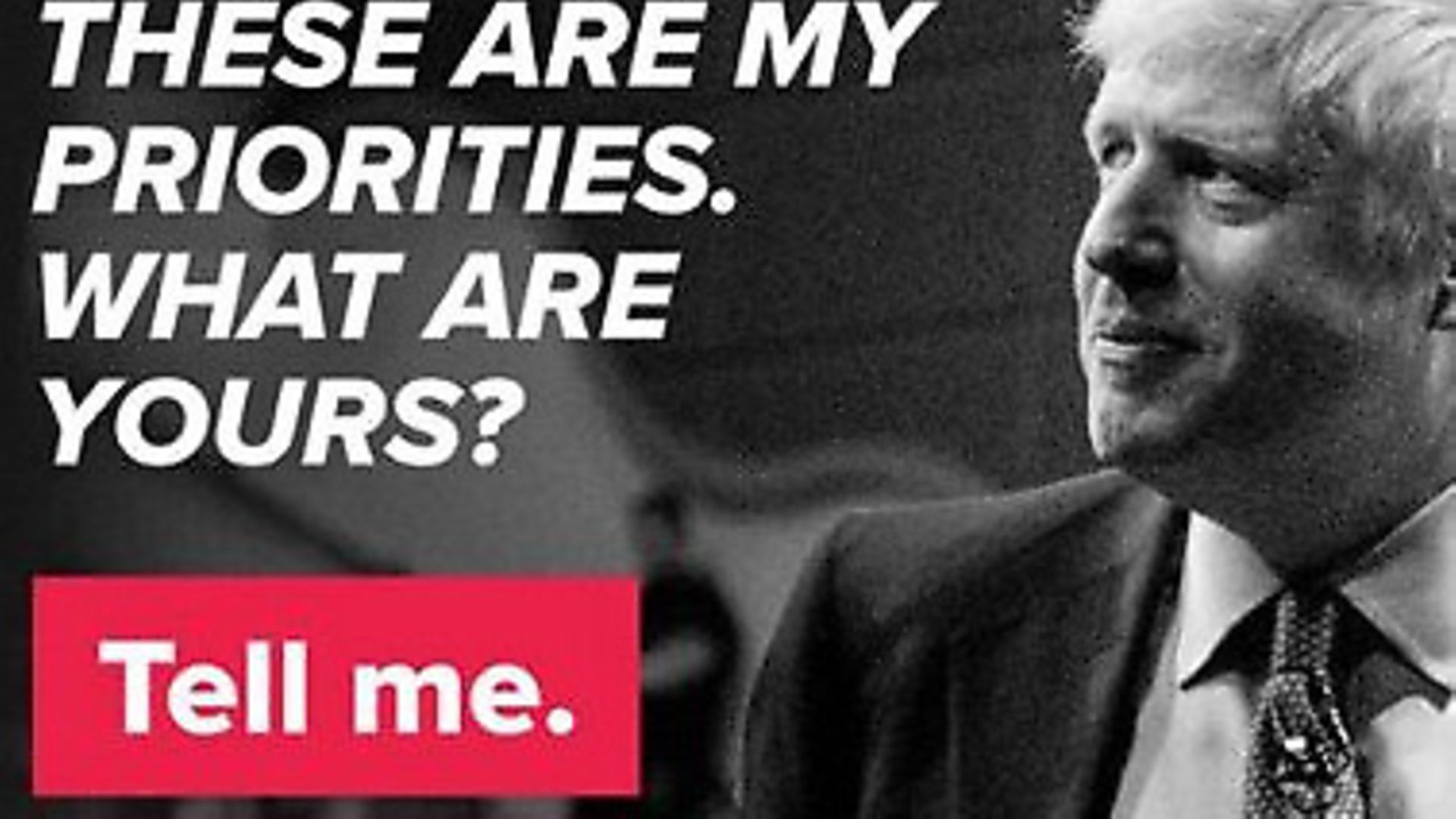
MIKE BUONAIUTO is calling for urgent action against the light-touch approach Facebook takes towards political campaigning on its platform.
Ever heard of the anonymised, political Facebook groups that gather data and then disappear within weeks of opening, with no obligation to declare any of their funding to the Electoral Commission?
Or how it’s impossible to know if the same person is running political advertising across hundreds of different Facebook Pages, all bank-rolled from the same source?
UK politics has become big business for Facebook in recent years. In the last twelve months alone, our leading political parties have spent just shy of £1 milliom on advertising with the platform. Facebook has been the new frontier for reaching people in a targeted and accurate way now for a long time. But following the Cambridge Analytica crisis, you might have thought Facebook would have cleaned up its act and taken responsibility. It may have to some degree, but as we approach the Brexit D-day (October 31st) and a potential election, some 3 years later – there is still a long way to go for the data behemoth to support true transparency in political advertising.
To delve a little deeper, Facebook’s Ad Library – a transparency tool which shows the ads that Facebook Pages are running and have run – shows that Boris Johnson’s social media management is a well oiled machine – and so it should be. His page is currently running hundreds of variations of the same advert, each with slightly different language, monitoring slightly different response rates, targeting slightly different demographics. This strategy is now adopted across most organised campaign groups and businesses. It ensures the advertiser gains an intensely accurate understanding of the language that gets the best reaction from different demographics, so this can be repeatedly refined – and used elsewhere in other advertisements. This may seem fair and transparent, but it isn’t, and here’s why.
There is a loop-hole.
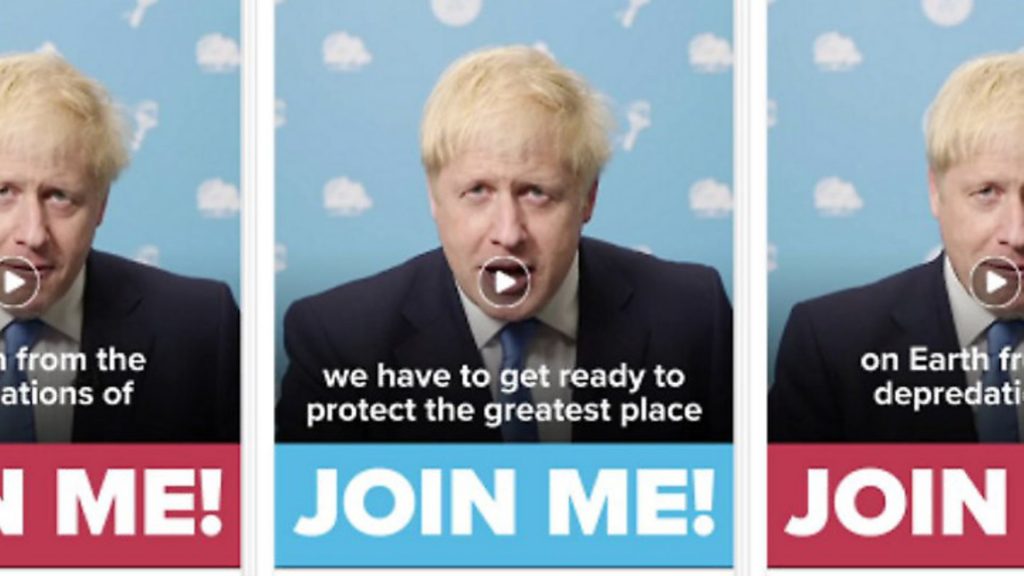
Facebook’s Business Manager still makes it impossible for anyone outside of the organisation to know which Pages are being run by the same people and organisations. This means, I can set myself up with a Facebook Business Manager and link it to my credit card. I can then run ads for hundreds of Pages (even pages for fake online grassroots campaigns) all paid for with the same credit card. This results in the findings of those separate ads helping inform the language on advertising used on completely different Pages, and more importantly, it also keeps the total budget, bank-rolling all of them, completely hidden, away from the Electoral Commission.
In short, there is absolutely no way of seeing all the pages one individual person is managing on Facebook. None.
To make matters worse, unlike the US, the UK currently doesn’t have a Foreign Agents Registration Act – meaning budget paid into UK bank accounts from abroad, and then used for political campaigns on Facebook outside of election time, do not need to be disclosed.
So let’s look at this again.
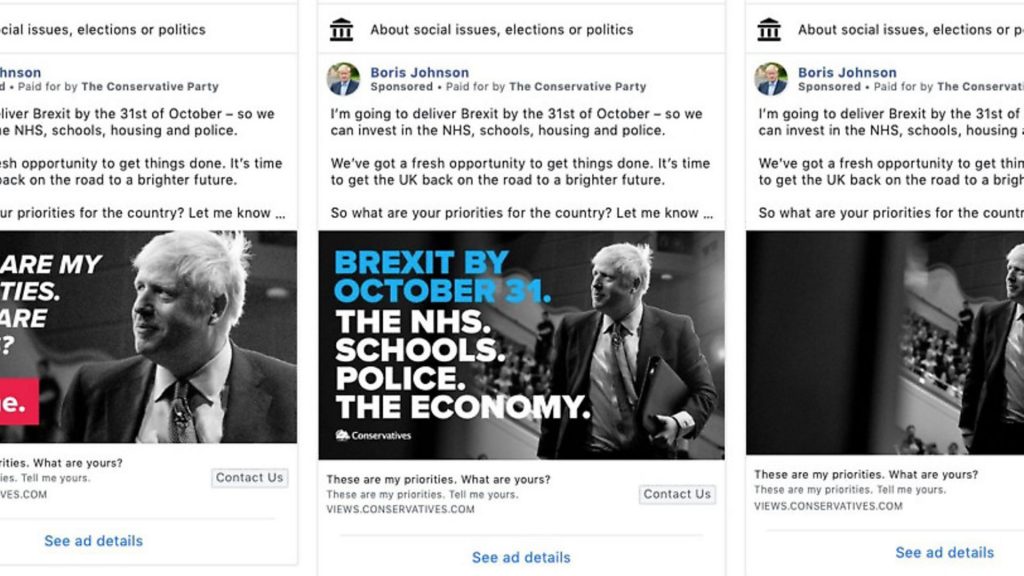
Recent reports claim that Boris Johnson’s recent leadership bid was supported with advice from Lynton Crosby, a long-standing friend of Johnson’s, who’s helped him win elections since his London mayor years. Along with also supporting British American Tobacco, and the coal industry, pushing anti-renewable messages and countering environmental activists, Lynton’s strategy firm, (CTF) were the support network for the 2016 Leave Campaign in the UK.
It has been claimed “as much as £1m was spent seeding the idea of a no-deal exit from the EU in the minds of the British public,” across hundreds of Facebook Pages, Groups and Communities.
And that’s where this gets tricky.
According to The Times, along with supporting the official Facebook pages of pro-brexit groups and individuals, Lynton’s firm also allegedly managed anonymised Facebook pages posing as online grassroots campaigns, which have spent a lot more budget on political advertising, and can be a lot more risky and divisive with their language.
Begin to use Facebook’s Ad Library to search the names of the many hundred smaller pro-brexit groups being set up to rally and divide opinion, like Britain’s Future, Mainstream or We Are The 52%, (all run by Lynton’s strategy firm according to the Guardian) and you could likely find a very different picture.
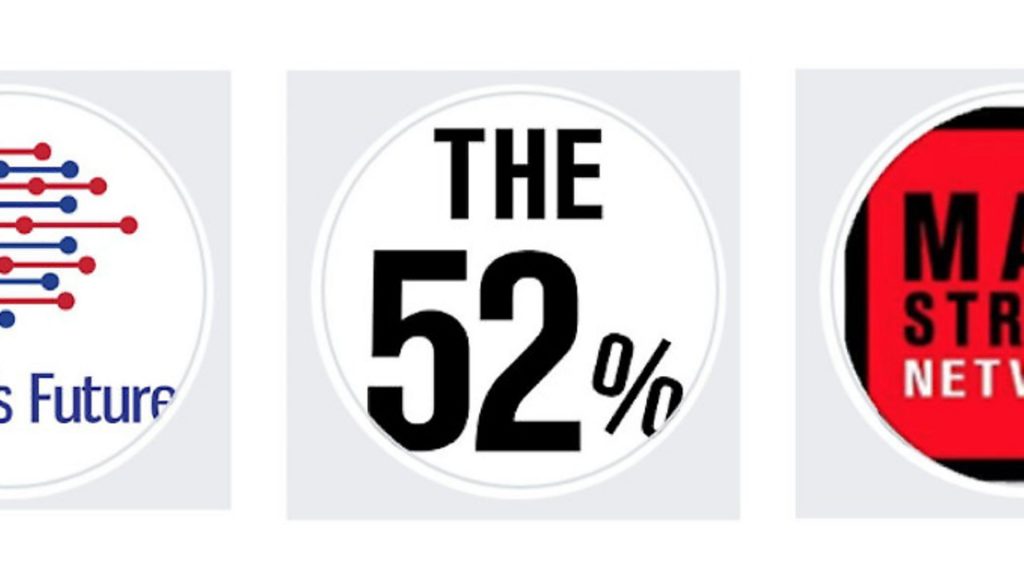
Britain’s Future, Mainstream and We Are The 52%, are all pro-Brexit Facebook pages, all reported have been run by the same strategy firm – but Facebook’s transparency tools don’t allow the public to see this.
We are told anonymous Facebook pages like this do not need to declare who is funding them to the Electoral Commission. So whilst official Facebook pages report their annual social media budget, the real breadth of spending, ad learning and development could very well be occurring on completely different Facebook pages, where content can be a lot more extremist, dividing and offensive.
These sub-pages, groups and communities on Facebook spring up, activate and then are deleted extremely quickly, within a matter of weeks sometimes. As a campaign’s strategist, I would think that’s a wonderfully clever way of gaining a lot of information on what language resonates with different demographics of people (voters), without the accountability or reporting.
MORE: The general election fight is already taking place – and it’s happening online
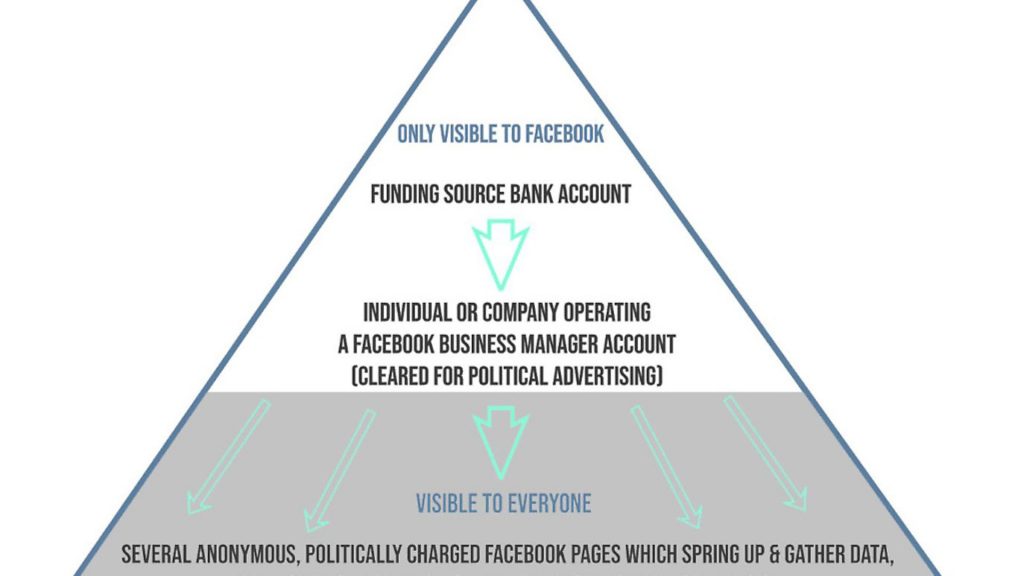
The result being…
So when we see pro-Brexit accounts and personalities using phrases like “patriot”, “treachery”, “betrayal”, “collatorator”, “righteous”, “freedom”, “coward” or “surrender” – rest assured those words have been tried and tested, often on thousands of unofficial Facebook Pages funded away from the gaze of the Electoral Commission, to ensure they will and do work to reach their aims.
It has been reported that Dominic Cummings and team are preparing to “weaponise the culture war” to win an election meaning that we’re potentially about the see the most turbo-charged election ever, where the highest bidder can buy the hearts and minds of the public using language they know they will be triggered by – but the bidders are invisible – thanks to Facebook.
If through certain tactics on Facebook, our government could discover that divisive language is the fastest way to gain support – and that activity could be completely unaccountable – should Facebook be stepping up, in the name of democracy, to make sure we all can see who is bank-rolling hundreds of anonymised, politically charged Facebook groups? The answer, is yes.
Want to help?
'It had not occurred to me that a platform that brought people together could also be used to drive them apart.'
— Channel 4 News (@Channel4News) September 12, 2019
Early Facebook backer Roger McNamee, who has been described as Mark Zuckerberg's mentor, says he is "incredibly sad" at the state of the social media company. pic.twitter.com/F8EBLEFBNR
The electoral commission says it wants to introduce legislation that would improve transparency for voters, and that the government has the power to make that happen. But it comes down to them to continue to lobby government to make it happen. You can tweet both Facebook and the Electoral Commission with this article, demanding they help to increase the transparency of political advertising. You can also tweet your MP. Demand greater accountability for all political advertising online, so we know who is paying for it and who owns the data.
More Research?
Watch Channel 4 News’ interview on the dangers of Facebook’s lack of transparency, with Roger McNamee, one of the early funders of the social media platform.
– Mike Buonaiuto is the founder of Social Change Agency, Shape History. He tweets as @mike_shapes.









